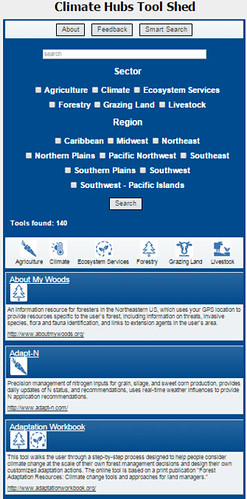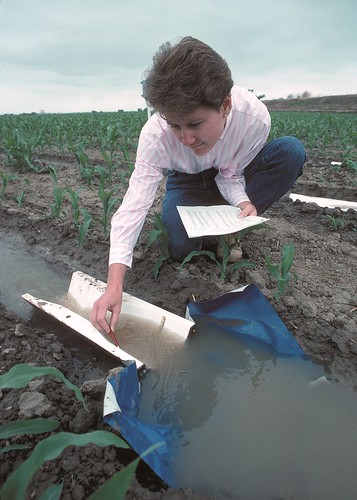
Producers want tools that can help implement adaptation strategies to reduce climate-related pressures and ensure the quality of production. They also need information about the effects of climate change on production systems. These range from management of labor resources in specialty crop production, to market demand for nursery crops, to marketing of locally grown produce. The Climate Hubs Tool Shed can be used to develop innovative management systems that increase profitability and product quality across all systems.
Launched in early 2014, USDA’s Regional Climate Hubs were established to deliver science-based knowledge, practical information, and program support to farmers, ranchers, forest landowners, and resource managers. To this end, the Hubs are excited to announce the release of the Climate Hubs Tool Shed. The Tool Shed is an online, searchable database of tools (data-driven, interactive websites and mobile apps) that can assist land managers, land owners, and extension professionals in adapting working lands to the impacts of climate change. Users can search using keywords, user-friendly categories, or a combination of variables via the advanced search feature. While many of these tools were developed specifically to adapt to climate variability, several were developed to aid in mitigating the indirect effects of climate change such as drought, pests, wildfire, and extreme weather.
The Climate Hubs Tool Shed is an excellent resource for managing the effects of climate change on working lands. Consolidating the tools in one place helps users find the best tool for their specific need. So take a look at the Tool Shed on the Climate Hubs Website. Feedback is always welcome, and can be provided via the “Feedback” button on the site. The Climate Hubs Tool Shed was developed by the Southeast Climate Hub, but is relevant and can be used by land managers across the country. Special thanks to Sarah Wiener, Emrys Treasure, and Steve McNulty of the Southeast Climate Hub for seeing this project to completion.

